Acne
Gels, creams and tablets to clear your spots.
Secure delivery
UK clinicians
Acne is a skin condition that’s relatively common, appearing consistently in around 10% of the global population, though significantly more people experience acne-related symptoms each year. Acne is caused by hormonal changes which leads to an increase in sebum on the skin. Sebum is the natural oil that your skin produces.
This increase in sebum - usually on the face, back and chest - leads to blackheads and whiteheads on the skin as the pores on the skin become clogged. This can be painful, uncomfortable and cause emotional stress.
Acne is generally harmless physically, but it can vary in severity and appearance. Sometimes areas of acne can become infected or cause scarring. Acne can seriously affect self-esteem and body image at all ages.
Acne is common in teenagers due to the hormonal changes that take place during puberty. It’s more common in teenage boys as testosterone signals to the body to make more sebum. This is most common in the T-zone of the face, which includes your forehead, nose and chin.
However, acne can also continue into adulthood and can appear as an adult even if you didn’t experience acne as a teenager. Hormonal changes during a woman’s period or during pregnancy can also lead to acne. Inflammatory acne is thought to affect around 58% of women over the age of 25. Hormonal adult acne typically appears on the lower part of the face such as the bottom of your cheeks, chin and jawline.
Acne can also appear as women experience menopause. This usually happens in your 40s and 50s, though can be later or earlier. This is also hormone-related, due to oestrogen levels dropping or an increase in testosterone levels. Acne can also run in families, so if your parents had acne you may be more likely to experience it too.
Acne is very common, with around 90% of people experiencing it at some point in their life. It’s more common in teenagers and is considered a relatively normal part of puberty. The level and severity of acne can vary from person to person and during different stages of life.
While adult acne is less common than teenage acne, it still affects a significant amount of the population and has increased over the past 20 years, especially in women — with one study finding that 85% of their adult acne patients were female. It’s considered to be the eighth most common skin disease in the world .
Despite acne being so common, it can still affect daily life for some people. This is particularly true if their acne is more severe or painful.

How we source info.
When we present you with stats, data, opinion or a consensus, we’ll tell you where this came from. And we’ll only present data as clinically reliable if it’s come from a reputable source, such as a state or government-funded health body, a peer-reviewed medical journal, or a recognised analytics or data body. Read more in our editorial policy.
Acne is caused when excess oil on your skin (known as sebum) blocks your hair follicles. This mixes with dead skin cells and causes either blackheads or whiteheads. Bacteria that live on the skin can cause infection in these blocked follicles and can cause painful cysts, papules or pustules. These are all different types of spots caused by acne.
Bacteria on the skin is also thought to cause acne by causing too much waste, which blocks the follicles on the skin. Increased testosterone, having parents who have had acne and hormonal changes in women can also cause acne. In some cases, certain cosmetics, smoking or wearing items that regularly put pressure on your skin (such as headbands, a bra or a backpack) can all cause acne.
Acne appears as ‘spots’ on the skin that can look different from person to person, and even in different parts of your face. Acne can sometimes be painful, red and inflamed. The most common types of spots that you get with acne are:
Acne can cause infections in the skin which can lead to illness and the need for further treatment to get rid of the infection and side effects. Acne can also lead to scarring and uneven skin texture.
Having acne can also go much further than skin deep. Research has shown that acne can have an impact on your mental health and self esteem, contributing towards depression, anxiety, low self-esteem and a poor self-image. Because of this, it can reduce your quality of life.

How we source info.
When we present you with stats, data, opinion or a consensus, we’ll tell you where this came from. And we’ll only present data as clinically reliable if it’s come from a reputable source, such as a state or government-funded health body, a peer-reviewed medical journal, or a recognised analytics or data body. Read more in our editorial policy.
There are different treatments for acne depending on the severity and cause of the acne. Some of the most common medications and treatments for acne are:
Topical treatments are usually most suitable for people who find it difficult to take medication in tablet form. Tablets and pills may be more appropriate for if you have sensitive skin and may not be able to tolerate creams, gels or lotions on their skin. The oral contraceptive pill is used for hormonal acne in women to regulate the levels of hormones in the body, dealing with the imbalance responsible for hormonal acne.
There are also non-medication treatments for acne such as skincare, comedone extractors, facial treatments and photodynamic therapy. These aren’t medically monitored and are usually unsuitable for the most severe acne.
When it comes to acne treatment, there are a few factors to take into account. It depends on the severity of your acne, individual suitability for certain types of medication and the cause of your acne. It also depends on other medication that you’re taking, any other skin conditions you may have and what type of medication you prefer to take.
The best treatment will be the most suitable treatment for you, which will vary from one person to the next.
Because acne is so common, it’s worth remembering that all acne doesn’t require treatment and will go away with time and care. By making sure you don’t pick and touch the spots when they appear, maintaining good hygiene and avoiding overusing cosmetics will control mild acne breakouts.
If your acne is severe, painful, extremely regular or causing you emotional distress, then seeking medical advice and support from medication may be a good idea. If your acne is hormonal, then some contraceptive pills can help to rebalance your hormones and deal with the acne.

How we source info.
When we present you with stats, data, opinion or a consensus, we’ll tell you where this came from. And we’ll only present data as clinically reliable if it’s come from a reputable source, such as a state or government-funded health body, a peer-reviewed medical journal, or a recognised analytics or data body. Read more in our editorial policy.
Have something specific you want to know? Search our info below, or ask our experts a question if you can’t find what you’re looking for.
Minor malformations characteristic of the retinoic acid embryopathy and other birth outcomes in children of women exposed to topical tretinoin during early pregnancy. American Journal of Medical Genetics Part A, 136A(2), pp.117–121.
Which birth control pills can help reduce acne?
The psychosocial impact of acne, vitiligo, and psoriasis: a review. Clinical, Cosmetic and Investigational Dermatology, Volume 9, pp.383–392.
P. acnes-Driven Disease Pathology: Current Knowledge and Future Directions. Frontiers in Cellular and Infection Microbiology, 7.
Adult-onset acne: prevalence, impact, and management challenges. Clinical, Cosmetic and Investigational Dermatology, Volume 11, pp.59–69.
Adult Acne Versus Adolescent Acne. The Journal of Clinical and Aesthetic Dermatology, 11(1), pp.21–25.
Understanding the Burden of Adult Female Acne. The Journal of Clinical and Aesthetic Dermatology, 7(2), pp.22–30. [Accessed 1 Oct. 2021].
Acne vulgaris. BMJ, 346(may08 1), pp.f2634–f2634.
Adult female acne: a guide to clinical practice. Anais Brasileiros de Dermatologia, 94(1), pp.62–75.
How Acne Bumps Cause the Blues: The Influence of Acne Vulgaris on Self-Esteem. International Journal of Women’s Dermatology, 4(1), pp.12–17.
A global perspective on the epidemiology of acne. The British journal of dermatology, 172 Suppl 1, pp.3–12.
Management of acne. Canadian Medical Association Journal, 183(7), pp.E430–E435.
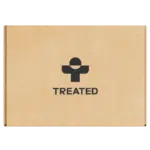
Available in gel, wash, cleanser and moisturiser for a healthy and holistic acne treatment.
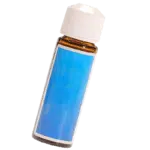
Strong acne solution with two ingredients. Both reduces acne and stops future breakouts.

Easy to use one a day tablet for women. Doubles as a contraceptive.
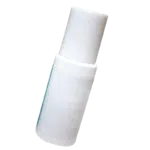
Strong topical antibiotic for facial acne. Comes in a thin solution for lighter application.
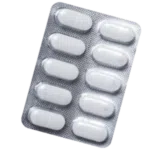
Versatile treatment for acne, rosacea and skin infections. Available in two strengths.
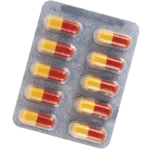
Strong antibiotic for acne and other skin conditions. Like Tetralysal but cheaper.

Antibiotic tablet that helps with acne caused by bacteria.
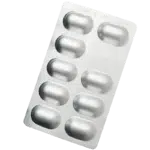
One a day branded antibiotic capsule. Good option if topical treatments haven't worked.
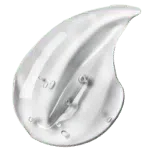
Once-a-day combination gel that unblocks your pores and tackles acne.
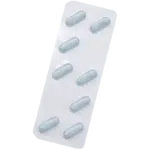
First choice antibiotic treatment. Kills the infection and stops it from multiplying.

Effective antibiotic cream that can also help with scarring.

A unique antibiotic and zinc combination that treats your acne and repairs your skin.

Registered with GMC (No. 4624794)
Meet Daniel
Registered with GPhC (No. 2202465)
Meet Sanjeda
Registered with GPhC (No. 2070724)
Meet Craig
Always read the leaflet that comes with your medication and tell us about any side effects you get.
We know health, but you know you.
Our experts tell you what’s safe, but you decide what’s best.
Answer a few questions and tell us about yourself. Get tailored advice from our clinicians so you can choose better.
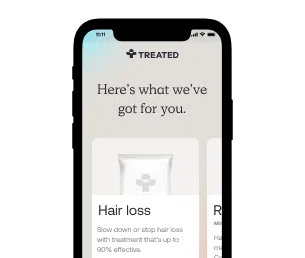
Choose your treatment and how often you have it delivered.
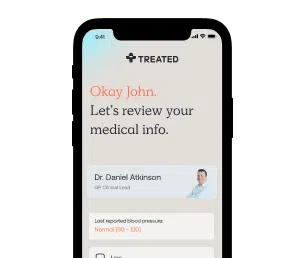
We know things change. It’s the nature of life. We’ll check in regularly to make sure your treatment is still right for you.
Pause. Change. Skip. Start again. Any time you like.
Here are some other things we can help with.
Choose from our range of tablets and solutions. Get ongoing care and support from our experts.
Stop smoking treatments that can help you kick the habit forever, and reduce your risk of disease.
Tablets or injections. Tailored weight loss treatments combined with ongoing support from our experts.
We're making healthcare more about you. Sign up to our newsletter for personalised health articles that make a difference.
Disclaimer: The information provided on this page is not a substitute for professional medical advice, diagnosis, or treatment. If you have any questions or concerns about your health, please talk to a doctor.
We couldn't find what you're looking for.
Here's everything we treat. Or, if you're looking for something we don't have yet, you can suggest something.
If there’s a particular treatment or condition you’re looking for, tell us and we’ll look into it for you.
Submit your question here, or tell us if you’ve found an issue on our site.
We’ll get back to you very soon. We aim to respond to all queries in one working day.
You’re signed up to our newsletter. Keep an eye on your inbox for our latest update.
By clicking 'Subscribe now' you're agreeing to our Privacy Policy.
We’ve sent you an email asking you to confirm your email address.